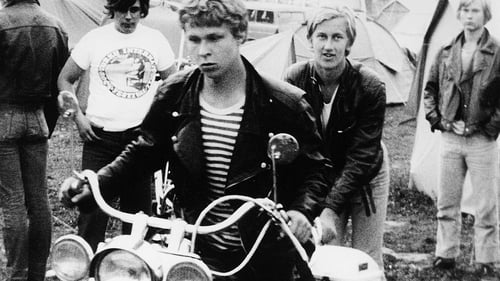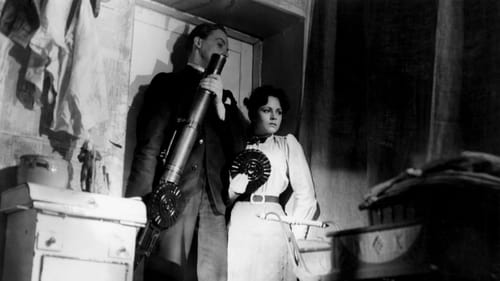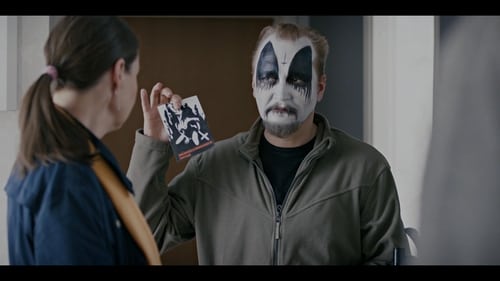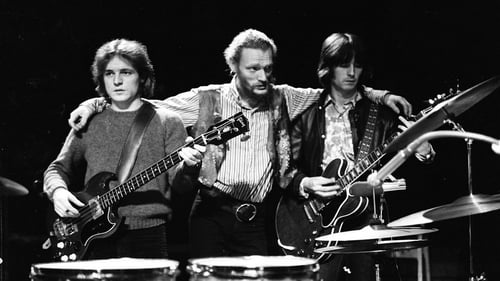Vesku from Finland (2010)
Gênero : Documentário
Runtime : 1H 42M
Director : Mika Kaurismäki
Sinopse
"Vesku from Finland" is a film about Vesa-Matti Loiri alias Vesku, probably the most popular film and TV comedian in Finland. He has created a significant career also as a singer, performer, writer and as a sportsman. He has recorded several albums, from folk songs and couplets to tangos. Some of his recordings are based on the lyrics of Hermann Hesse or Eino Leino, the infamous Finnish poet. During his unique career he has played in more than 60 films and recorded 30 albums.

Young Alex Sammako has seen his brothers defy the law in a series of deeds that first land them in jail, and then, after they escape and return to their rural home, land them back in the lap of their locally notorious family. Alex wants nothing to do with them. He is in love with Mirja, whose family is not that different from the Sammakos, but who shares Alex's viewpoints and feelings. Not helping matters is a police department convinced that all Sammakos are bad, and the family itself, pressuring Alex to follow in their murky footsteps.

F*** Off! shows no false respect towards the authorities in its impudent and candid reportage of the developing country/welfare state Finland. It is a cinematic parallel to Donner's New Book of Our Land (1967). The travelogue focuses especially on Finland's outsiders, low-paid workers and the unemployed. In desolate provinces, the inhabitants of a cold and barren country either humbly abide their fate, choose to move to Sweden or take refuge in excessive drinking. These images are accompanied by protest songs based on Donner's own prose and the lyrics of poet Jarkko Laine. Perkele is embodied in big business and the political elite.The jagged (anti)aesthetics of the film correspond to the underground movement and the radical politics of the time. The camera agilely penetrates everyday life. Though opposed to censorship, Fuck Off! itself transgresses the boundaries of privacy.

Joulubileet (The Christmas Party) might well be the closest to the ultimate cult movie that the Finnish film industry has ever gotten. The third directorial effort of Jari Halonen, a clearly distinctive voice in the local filmmaking landscape, is a timeless, absurd and at times completely insane piece of masculine comedy rough not only on the edges, but to the core. A story of Mike, just out of prison, and his buddies throwing a Christmas party under the most obscure circumstances is filled with juicy dialogue and plot twists that will definitely make your jaw drop – and have you chuckle for days after.

Antti "Zombie" Autiomaa does two things well: play the bass guitar and drink. After several months' sleeping on the streets of Istanbul, he returns to Helsinki where he's called into the army but discharged on mental health grounds after adding turpentine to the officers' soup. Zombie lives bleary-eyed in an apartment off his parents' house where his lonely, unemployed father suffers from heart disease. His girl-friend Marjo has taken up with a hairdresser but comes back to Zombie. His friend Harri hires him as a roadie for his band "Harry and the Mulefukkers" then gives him a chance as a bass player. He has his girl and he has a gig, but can Zombie put the bottle down?

A small village provides a scene for intrigues, fights, love, jealousy, accusations, and revenge.

A thriller set in turn-of-the-century Helsinki, Stolen Death uses elements of German expressionism to tell the story of Finnish resistance fighters smuggling arms to overthrow the Tsarist occupiers of Finland. Tapiovaara stresses the divided loyalties of the Finnish bourgeoisie, torn between preserving their privileged economic position and taking a risky stand for an independent Finland. Stolen Death can be viewed as a thinly disguised protest against the rise of the fascist movement in Finland in the 1930s. Tapiovaara's allegorical indictment of class inequality and the suppression of free speech and political expression, coupled with his death at 28 fighting the Russians in the Winter War of 1939-1940, earned him almost a mythic status in Finland.

The Gold Spinners is a story about the birth, glory, and disappearance of a peculiar, invisible, and mighty business empire, the film studio Eesti Reklaamfilm, the only company producing commercials in the Soviet Union.

Based on a song by the same name. It was the Genre Popularizer for the Rillumarei film and live entertainment genre that drew from the musical couplet genre of light, cleverly written, often satirical songs. Many of these films were based on an existing song, or a song was specifically written to be the foundation of a film.

Finnish movie.

It's almost Christmas but these three people are still on the road. The products don't sell, the car is a wreck and the weather is freezing. Moreover there is a problem: how to cope with an emerging friendship?

A woman sleeps peacefully unaware that a secret admirer has a gift for her.

Olavi, a farmer's son, leaves his home after a dispute with his father and leads a life of a womanizing logger.

Mikko Niskanen's famous new wave film about the '60s urban intellectuals who get faced in the Finnish countryside with loads of beer.

A scholar of mathematics would like to publish his research outside Ceaucescu's Romania, but getting it through the border and the State censorship is not easy.

Bright young soldier Mertsi suffers a permanent brain injury in the Second World War. In the late 1940s he wanders around the Finnish countryside looking for simple work and relying on other people's help. A workmate, Ville, tells him about his clever Spitz dog back home and the problems with her overlong dew claws. Together with his helpful war buddy Eetvi, Mertsi joins a lumber camp in the middle of a freezing winter, tries hard but finds the work there too strenuous for his body and mind. While he still sees nightmares about the war, in the daytime he keeps dreaming and worrying about the dog...

Regina Linnanheimo plays Eeva, a happy and spirited lady who is being courted by two gentlemen. Eventually she marries the other and leads a content family life - until through unlikely events she ends up in a prison, suffering from amnesia.

Raimo’s comfortable, middle-class bubble is burst when a Satan-worshipping sex cult moves in next door.

The historic Farewell Concert at Albert Hall in London by one of rock's greatest groups has been dynamically recorded in this film by Robert Stigwood. The group, composed of Eric Clapton on lead guitar, Jack Bruce on bass and lead vocals, and Ginger Baker on drums, give an electrifying performance that is as exciting to watch as it is to hear. Each of the musicians has gone on to become a superstar in his own right, and we get to see fascinating backstage interviews with all of them. Highlights include the long version of "Sunshine of Your Love" and "White Room" along with other Cream hits.

A documentary film about Martta Koskinen, the last executed woman in Finland during the war in 1943. Martta was a Seamstress who lived in Helsinki during the Second World War. She was one of the post-civil war (in 1918) generation for whom the war had meant a disappointment in the system and failure in unity of the Finnish nation. The legacy of the civil war had left systems of persecution in place for those with socialist ideals. Martta and her fellow revolutionaries were determined to continue the resistance movement although they knew that at worst it could cost their lives. Martta was imprisoned twice before she was shot. She was an idealist, whose seemingly harmless, naive beliefs in peace and justice were the most dangerous traits a person could have at the time.









